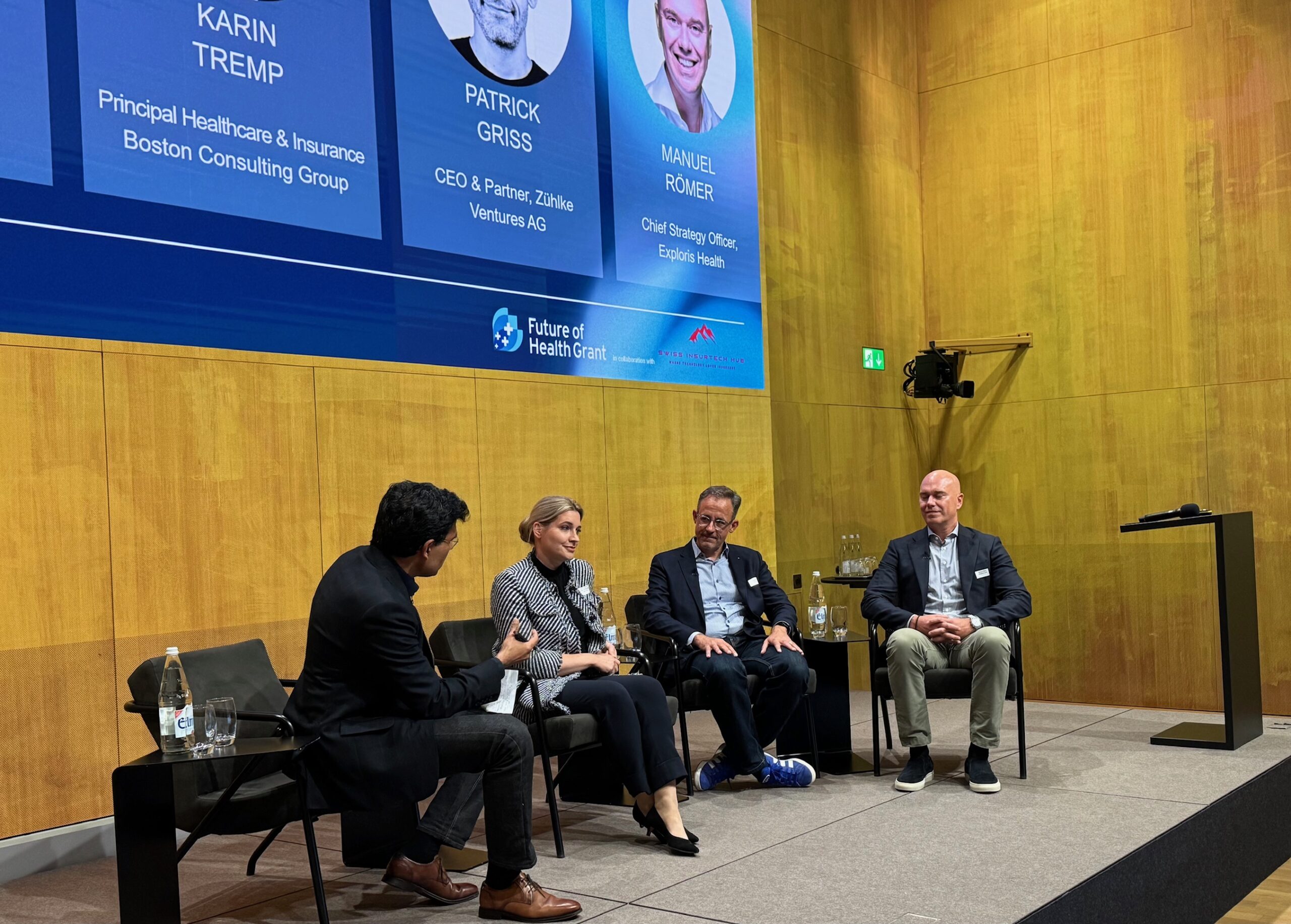Prevention was a recurring theme at the event in Zurich. The panelists noted that healthcare systems and insurers benefit most when illnesses are detected early or prevented altogether.
Patrick Griss, Partner at the Zühlke Group, summed up this change succinctly: “Personalization allows us to detect diseases before they break out and before they become costly. For insurers, this is a clear incentive. For patients, it means a better quality of life.”
This preventative approach can be seen in start-ups such as BoneScreen, which uses AI to analyze routine CT and MRI scans for early signs of chronic diseases, from osteoporosis to cardiovascular risks. As co-founder and CEO Anjany Sekuboyina explained, these findings are often hidden in the images but are never recorded by doctors as they are outside the immediate diagnostic question. By tapping into this data, BoneScreen aims to deliver personalized risk reports that not only diagnose but also predict critical events.
Data readiness: the missing link
Despite the enthusiasm, the speakers acknowledged that Switzerland and Europe still have structural hurdles to overcome. Luana Eroles, Head of Vision at S360, emphasized the importance of data infrastructure: “AI is not the beginning – it is the middle. Without good data structures and semantic clarity, we cannot create high-quality innovations.”
Her message echoed Prof. Olivier Michielin’s call for interoperable data warehouses. Personalized health requires not only new technologies, but also the cultural and institutional willingness to share data responsibly across hospitals, insurers and national borders.
Financing the future
Funding was another unresolved issue. While Swiss insurers such as CSS support pilot projects, the long-term economics of personalized health remain complex. Philomena Colatrella, CEO of CSS, emphasized the need for viable business models that reconcile prevention and reimbursement. Start-ups would need to demonstrate not only clinical efficacy, but also clear economic value for insurers and healthcare providers.
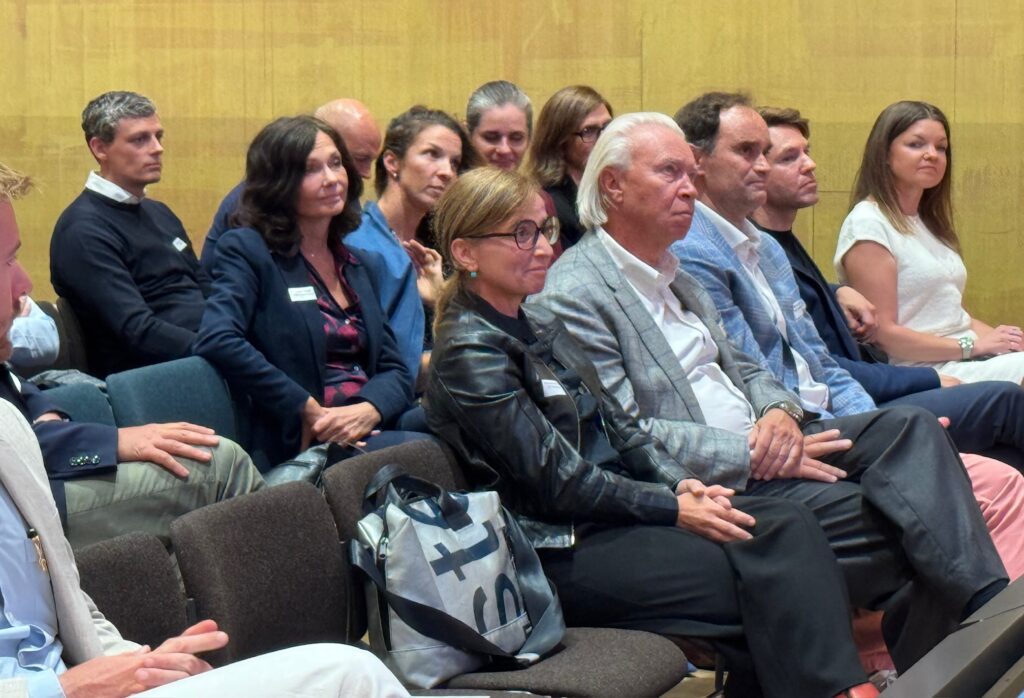
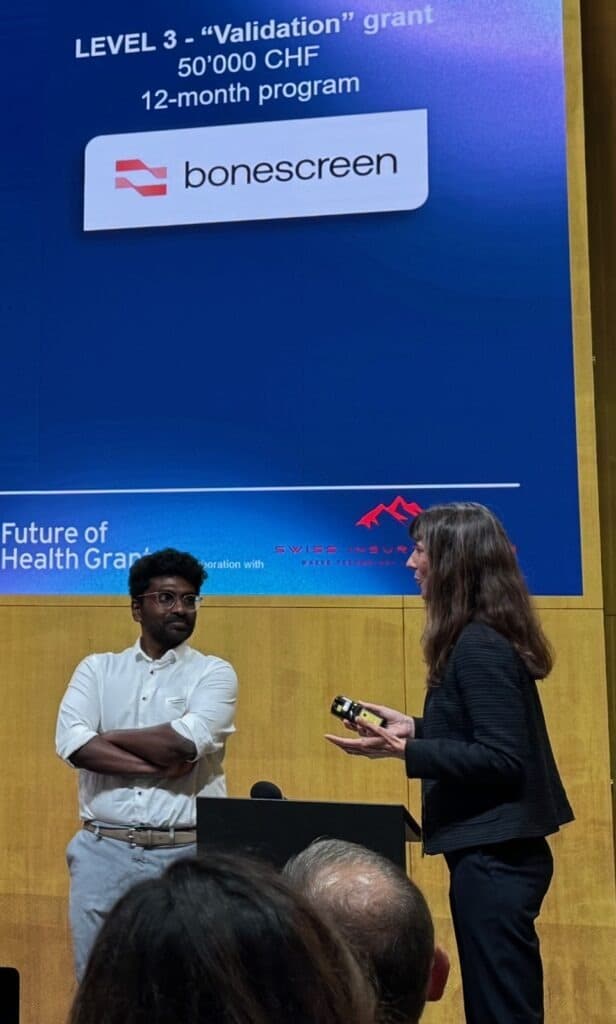
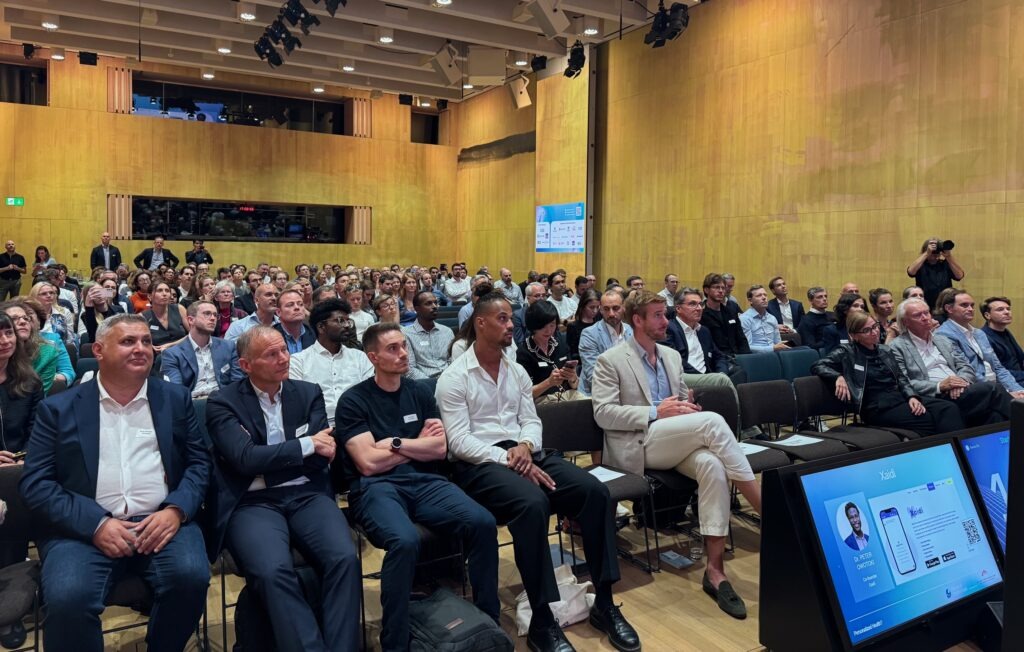
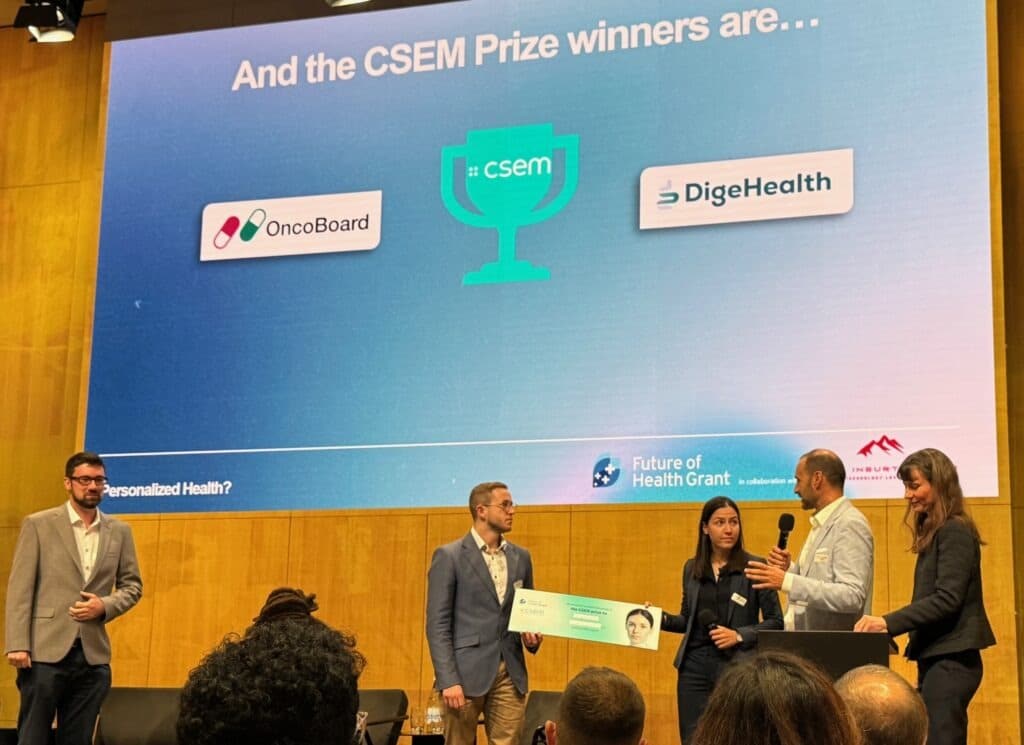
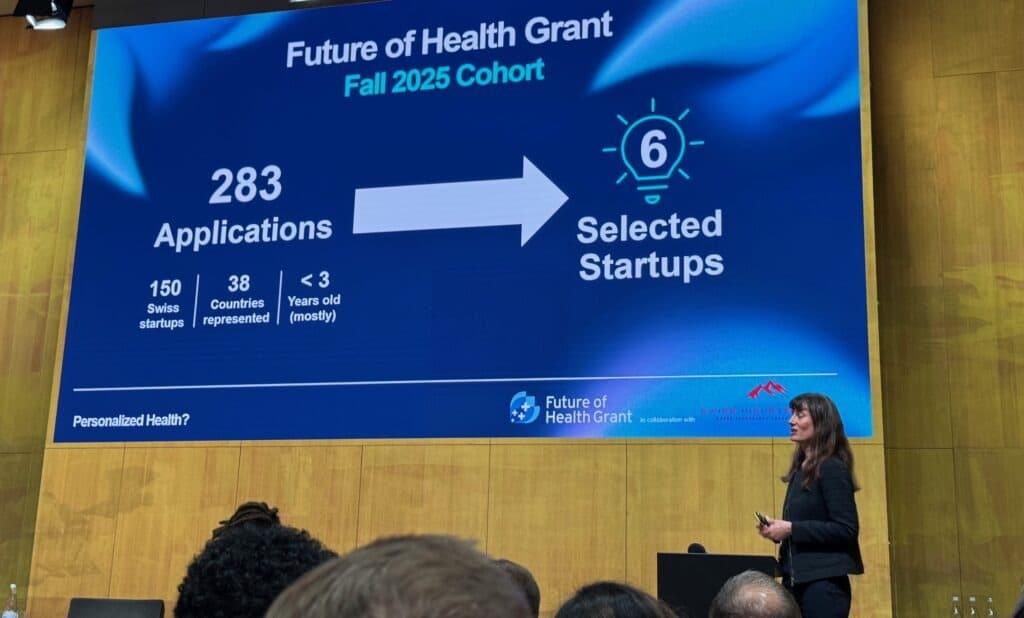
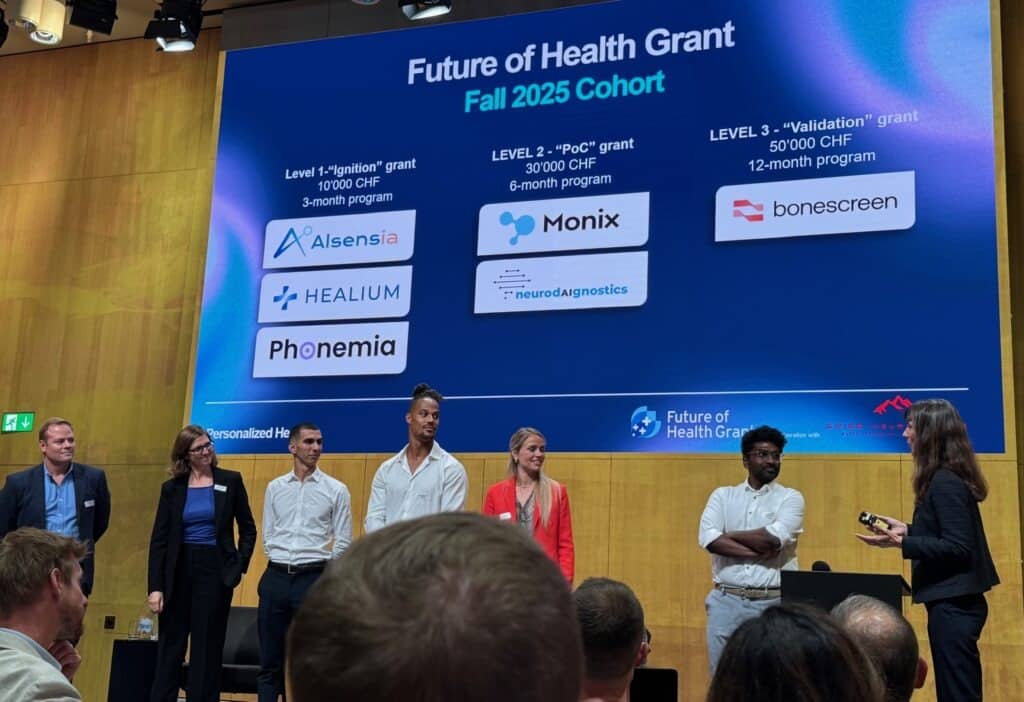
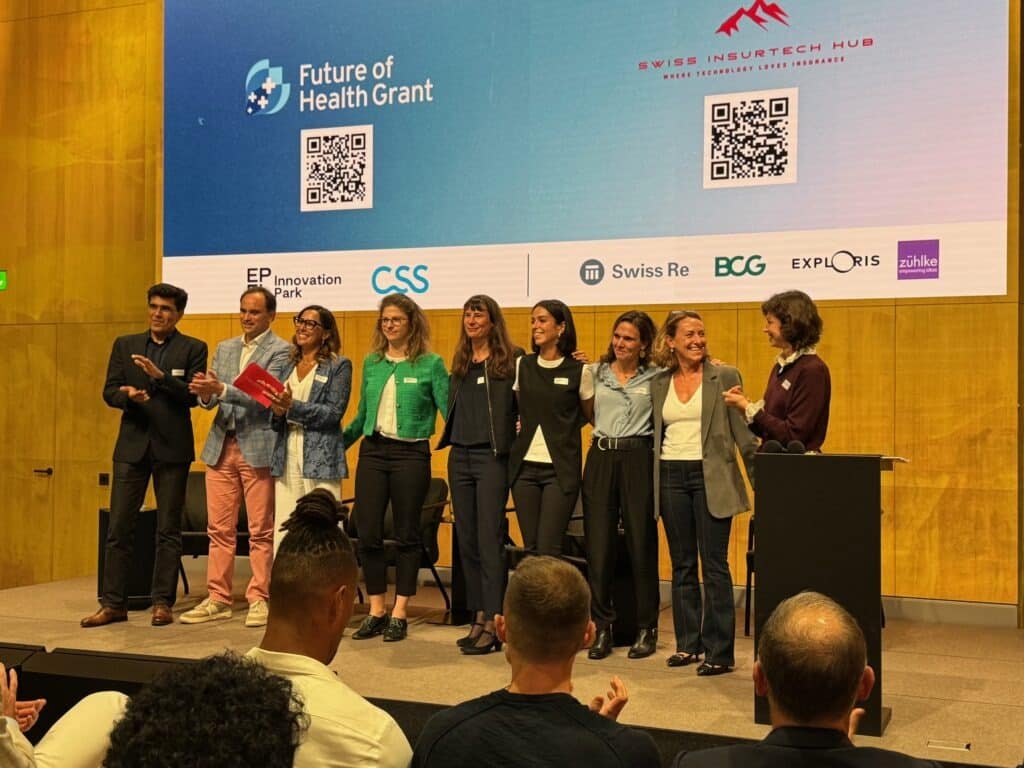
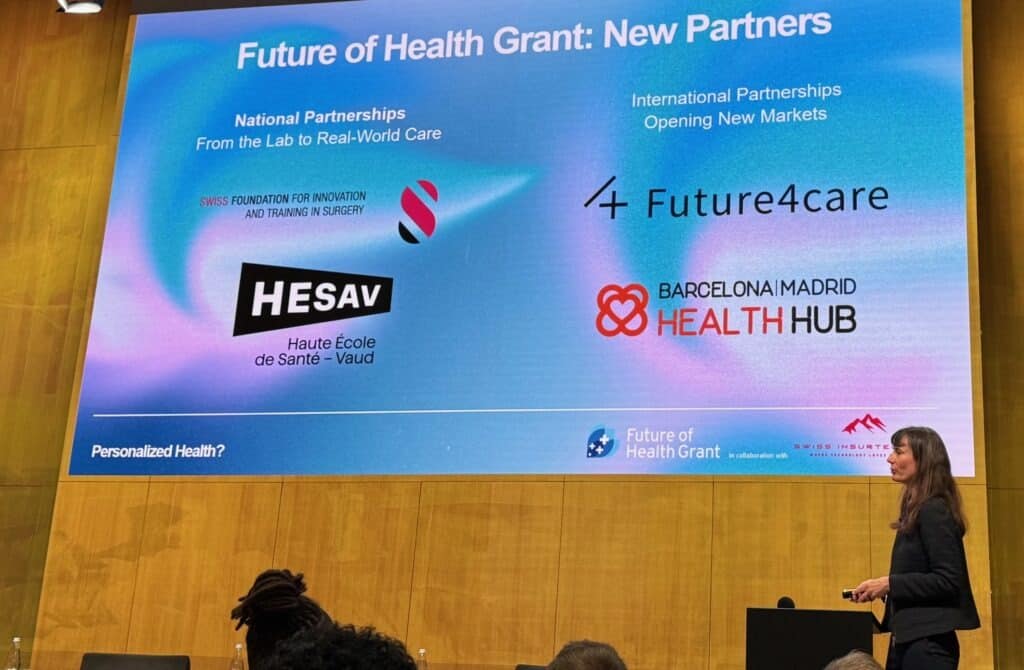
Beyond medicine: thriving as a goal
Interestingly, the conversation also went beyond the clinical and financial aspects. Eroles introduced the concept of “human flourishing” as a vision for the future of health: not just preventing disease, but actively enabling people to thrive physically, mentally and socially. This broader view could redefine what personalized health means in the coming decades.
Switzerland’s competitive advantage
What sets Switzerland apart in this area is its ability to combine world-class research, strong insurers and a dynamic startup ecosystem. Programs such as the Future of Health Grant and the Swiss Insurtech Hub aim to connect these players and create a test bed for innovations that can later be scaled across Europe.
Prof. Michielin summarized: “We are firmly convinced that better patient selection and better treatment allocation will be the key to success. With data systems that we can interrogate with AI, we will be able to raise the bar even higher.”
A revolution is underway
Personalized health is no longer a futuristic slogan. From digital pathology in Geneva to AI-supported wearables in Zurich, the building blocks of a patient-centered healthcare system are taking shape. However, the road ahead is complex: success depends on a robust data infrastructure, sustainable funding and, above all, trust between patients, providers and insurers.
If the conference in Zurich showed one thing, it was that the future of health lies in collaboration. Personalized medicine is not the sole domain of doctors or algorithms – it is a joint project between researchers, patients, start-ups and insurers. And although there are still many unanswered questions, the direction is clear: healthcare is becoming more personal, more preventive and ultimately more human.
Binci Heeb
Read also: From buzzword to practice: how personalized health is changing medicine
